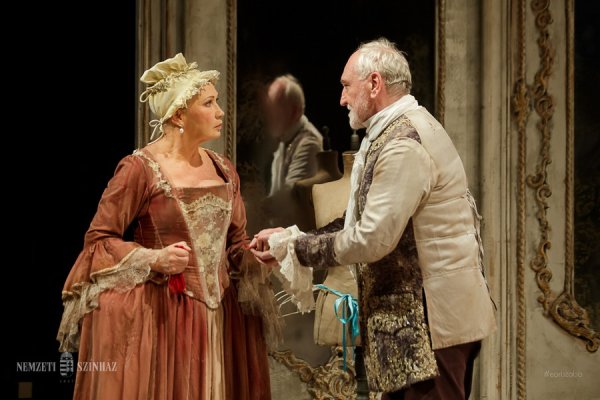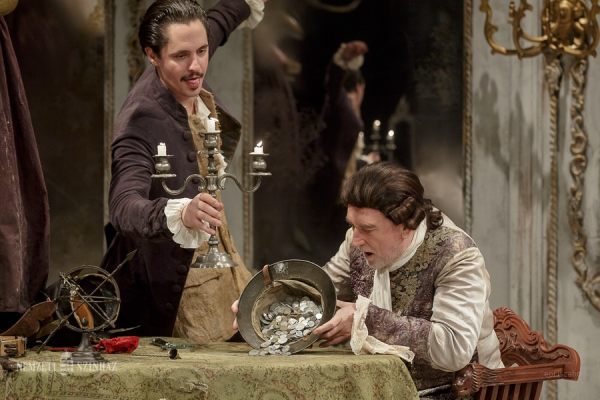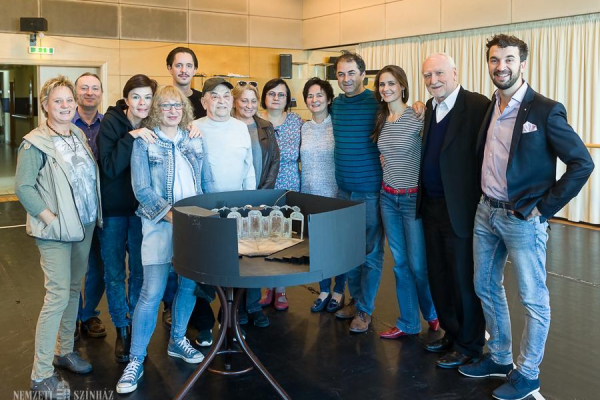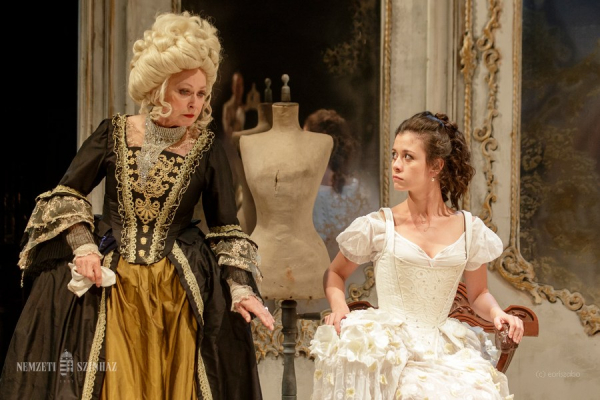
Marriage in Palermo
The theatrical season of 1749/50 was a difficult one for Goldoni. He made a bet to write 16 three-act pieces for the Sant’ Angelo Theatre of Venice, such masterpieces among them as The Coffee House, The Comedy Theatre or The Liar. The Antiquarian's Family is yet another famous play from this prolific era. The story is exttremely simple, about almost nothing, like in the case of most Goldoni plays. A broken fan, a piece of baked pumpkin, a miscued meeting, and the unstoppable circle of quarrels and jealousy is under way in two shakes of a lamb's tail. For Goldoni, the comical situation is nothing more but a starting point; the real source of comedy being the human character itself.
Palermo, the day after the wedding. A new woman is brought to the prestigious, but impoverished Terrazzani House. A wealthy man, the bride's father paid a dowry of 20 thousand piastra; however, the money is quickly spent by the father-in-law, obsessed with antiques, and the mother-in-law, who has an insatiable appetite for jewelry and clothes. The girl and the meek, loving husband, Giacinto are left with barely anything, not even enough for decent clothes. Soon the family hierarchy is upended by the cunning machinations of the women.
In Goldoni's comedies, the conquest or recovery of a woman is a recurring central theme. Youngsters and old men, masters and servants go up against each other, fueled by unquenchable desire.The Antiquarian's Family is an exception. Here, the main conflict occurs between three women, and the love affairs and other deeds of men are but meager secondary tunes in the thunder escalating between the three furies. Anzelmo retreats among his antiques, spending the quickly dwindling fortune of her daughter-in-law on collecting artifacts related to the Egyptian cult of death. The hapless young husband is caught up in the feud between his wife and his mother. Despite his wit, Pantalone does not reach his much coveted peace and must back down. And finally, Goldoni puts an even more sinister twist into the spirited domestic dispute by involving the maid, Colombina as well. The opposite of her gentle-sounding name in every bit, her offended ego and vicious nature is oil to the fire. At the end, the men are exhausted by the game of prestige around them. Only Brighella, the swindler seems to thrive in this environment, as the opportunism of a resetter and the grandiosity of a Sicilian gentleman smoothly blend in his shady character.
Goldoni is the grand master of false happy endings—he knows way too much about life to believe in ever-lasting peace. Marriage in Palermo ends with a silent bit that seems to foreshadow the next period of the eternal conflict.
In Hungary, the play has never been performed in a traditional theatre before.





